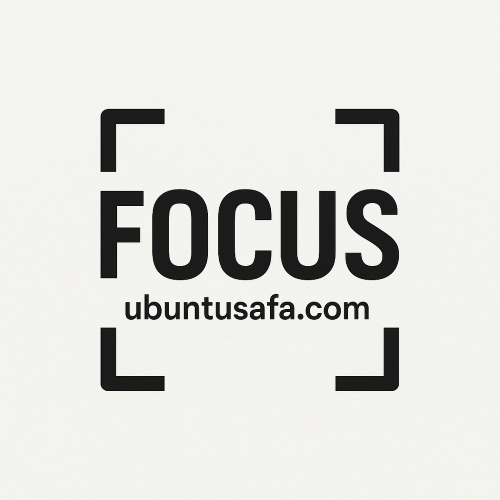Focus on South-Sudan- What risks does South Sudan face from global ideological conflicts spilling into Africa (Iran, Gulf states, extremist groups)?

South Sudan is extremely vulnerable to spillover effects from global ideological and proxy conflicts due to its weak institutions, porous borders, and ongoing internal tensions.
Here’s a detailed assessment:
1. Ideological/Proxy Influence from the Gulf and Iran
-
Funding and political influence: Gulf states (Saudi Arabia, UAE, Qatar) and Iran often fund local factions, religious institutions, or militias aligned with their geopolitical interests.
-
Religious polarization: Foreign funding can exacerbate sectarian or identity-based divisions in communities, particularly in border regions or urban centers.
-
Economic leverage: Investments or aid from Gulf states can be tied to political alignment, weakening state autonomy.
Risk Example: In other African states (Yemen’s conflict spillover in Somalia, Hezbollah-linked influence in West Africa), foreign actors fund militias to advance regional agendas, which fuels local conflict.
2. Extremist Groups
-
Presence of transnational jihadist networks: Groups like Al-Shabaab, ISIS affiliates, or other Islamist extremist movements could attempt to exploit South Sudan’s instability.
-
Recruitment of disaffected youth: High unemployment, ethnic grievances, and ungoverned areas make the country fertile ground for radicalization.
-
Cross-border operations: Porous borders with Sudan, Uganda, Ethiopia, and CAR could allow extremist groups to establish bases or smuggle arms.
Risk Example: In the Sahel, local weak states with ethnic and political grievances have allowed extremist groups to gain influence. South Sudan faces a similar potential if governance gaps persist.
3. Regional Spillover from Proxy Conflicts
-
Neighboring interventions: Iran, Saudi Arabia, or UAE-backed groups in Sudan or Ethiopia could use South Sudan as a proxy front for influence in the region.
-
Arms and finance flows: Weapons, cash, and fighters can cross borders, amplifying local conflicts.
-
Alignment pressures: Factions may seek foreign sponsorship for political survival, further embedding external ideological agendas.
4. Domestic Vulnerabilities Amplifying Global Risks
| Factor | Impact |
|---|---|
| Weak state institutions | Inability to monitor or regulate foreign funding and ideology |
| Fragmented security forces | Different militias may ally with external actors |
| Poverty and unemployment | Creates a pool of recruits for extremist groups |
| Ethnic polarization | External actors exploit rivalries for influence |
| Oil wealth | Resource rents become a magnet for external patronage |
5. Potential Consequences
-
Reignition of civil war: External backing for factions could prolong or restart fighting.
-
Terrorist safe havens: Weak border regions could become bases for transnational extremist operations.
-
Undermining national sovereignty: Foreign states may dictate policies through sponsorship or aid conditionality.
-
Economic disruption: External ideological conflicts can interfere with oil exports, trade corridors, and investment.
6. Mitigation Strategies
-
Strengthen state institutions: Border security, customs, intelligence, and law enforcement to regulate foreign influence.
-
Inclusive governance: Reduce domestic grievances that external actors exploit.
-
Regional cooperation: Work with IGAD and AU partners to monitor extremist networks and funding flows.
-
Diversify foreign relations: Avoid over-reliance on any single external actor to reduce leverage.
-
Community resilience programs: Education, vocational training, and local peacebuilding to counter radicalization.
-
Transparent aid and investment: Track foreign funding to prevent ideologically-driven patronage.
Conclusion-
South Sudan faces a high risk of global ideological conflicts spilling in, including:
-
Proxy influence from Gulf states and Iran,
-
Extremist recruitment and operations,
-
Regional rivalries exploiting factional divisions.
Without strong governance, border security, and inclusive nation-building, foreign ideological agendas could intensify internal conflict, undermine sovereignty, and threaten long-term stability.
- Questions and Answers
- Opinion
- Motivational and Inspiring Story
- Technology
- Live and Let live
- Focus
- Geopolitics
- Military-Arms/Equipment
- Безопасность
- Economy
- Beasts of Nations
- Machine Tools-The “Mother Industry”
- Art
- Causes
- Crafts
- Dance
- Drinks
- Film/Movie
- Fitness
- Food
- Игры
- Gardening
- Health
- Главная
- Literature
- Music
- Networking
- Другое
- Party
- Religion
- Shopping
- Sports
- Theater
- Health and Wellness
- News
- Culture

